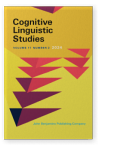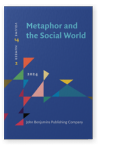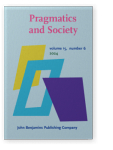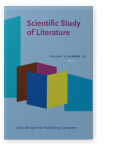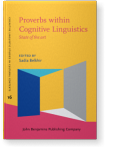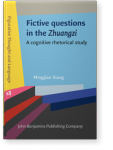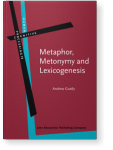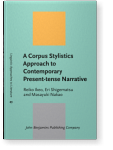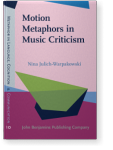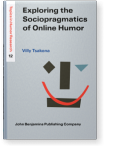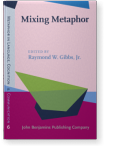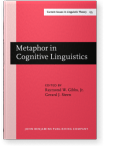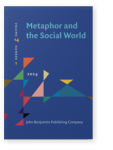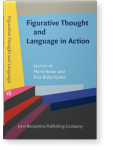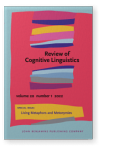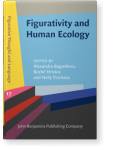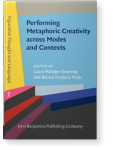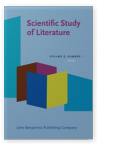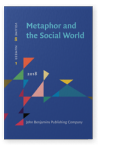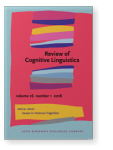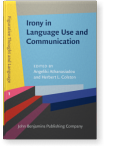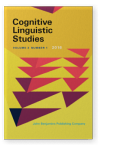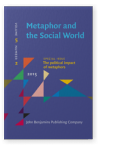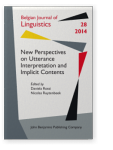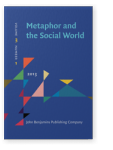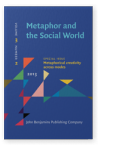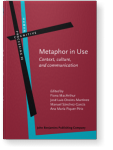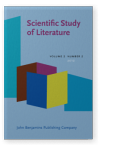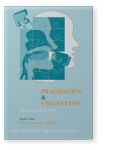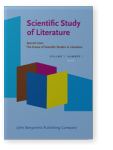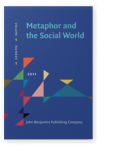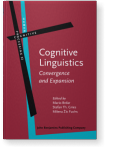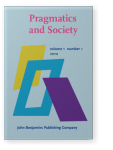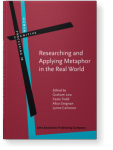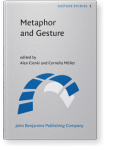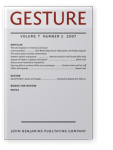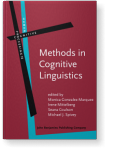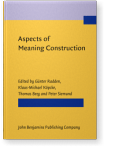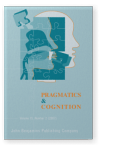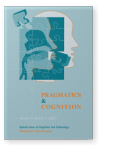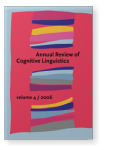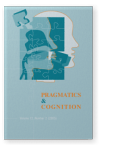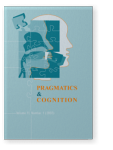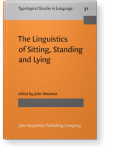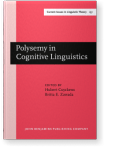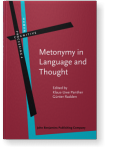Raymond W. Gibbs, Jr.
List of John Benjamins publications for which Raymond W. Gibbs, Jr. plays a role.
Journals
ISSN 2210-4070 | E-ISSN 2210-4097
Book series
ISSN 1879-8047
ISSN 2405-6944
ISSN 2210-4836
Titles
Mixing Metaphor
Edited by Raymond W. Gibbs, Jr.
[Metaphor in Language, Cognition, and Communication, 6] 2016. xiv, 269 pp.
Subjects Cognition and language | Cognitive linguistics | Theoretical linguistics
Metaphor in Cognitive Linguistics: Selected papers from the 5th International Cognitive Linguistics Conference, Amsterdam, 1997
Edited by Raymond W. Gibbs, Jr. and Gerard J. Steen
[Current Issues in Linguistic Theory, 175] 1999. viii, 226 pp.
Subjects Cognition and language | Discourse studies | Pragmatics | Semantics
2024 Should offensive metaphors be censored? Metaphor and the Social World 14:1, pp. 154–162 | Article
This article offers my personal assessment of the recent efforts to censor certain metaphors in higher education within the United States. Many universities have created extensive speech codes that censor various metaphorical words and phrases for their potential harm, especially for possibly… read more
2022 Important challenges in the study of metaphors Figurative Thought and Language in Action, Brdar, Mario and Rita Brdar-Szabó (eds.), pp. 19–36 | Chapter
The world of metaphor scholarship is amazingly diverse, involving a myriad of empirical methods and theoretical frameworks. This diversity is greatly appealing, given the enormous complexity of metaphorical thinking, language, and human action. This chapter identifies some challenges for… read more
2022 Metaphorical experience: Contiguity or cross-domain mappings? Living Metaphors and Metonymies, Brdar, Mario and Rita Brdar-Szabó (eds.), pp. 7–32 | Article
This article examines whether metaphorical experiences are better characterized in terms of contiguity or cross-domain mappings. My claim is that many facets of concrete experience are infused with metaphoricity as part of our ordinary understanding of these events. Many source domains in… read more
2022 Looking for metaphor in the natural world Figurativity and Human Ecology, Bagasheva, Alexandra, Bozhil Hristov and Nelly Tincheva (eds.), pp. 43–61 | Chapter
Metaphor in thought, language, and other expressive actions, emerges not just from the body (or culture) alone, but from humans acting in the natural world. Numerous natural world phenomena serve as source domains in many areas of metaphorical thinking and language use. This is not surprising… read more
2020 Chapter 2. Metaphor in multimodal creativity Performing Metaphoric Creativity across Modes and Contexts, Hidalgo-Downing, Laura and Blanca Kraljevic Mujic (eds.), pp. 19–42 | Chapter
This chapter describes the role that metaphor plays in multimodal creativity in several creative endeavors, specifically music, art, dance, and advertising. Many creative instances of metaphor performance rely on entrenched metaphorical concepts that get manifested in very specific, concrete ways… read more
2019 What psycholinguistic studies ignore about literary experience Scientific Study of Literature 9:1, pp. 72–103 | Article
Multiple decades of psycholinguistic research exploring people’s reading of different types of language has delivered much improved understanding of textual comprehension experience. Psycholinguistic studies have typically focused on a few cognitive and linguistic processes presumed to be… read more
2018 Metaphor and the automatic mind Metaphor and the Social World 8:1, pp. 40–63 | Article
When people produce or understand verbal metaphors, and metaphoric gestures, do they do so automatically or with conscious deliberation? Metaphor scholars widely recognize that the answer to this question depends on several factors, including the specific kind of metaphor that was produced or… read more
2018 Humor, irony, and the body Issues in Humour Cognition, Dynel, Marta (ed.), pp. 72–96 | Article
Irony has traditionally been studied as a purely pragmatic phenomenon, one in which a speaker says one thing and means another, often by commenting on the contrast between expectation and reality. However, as cognitive linguists have discerned for many other aspects of language, much of the ways… read more
2017 Chapter 2. How does irony arise in experience? Irony in Language Use and Communication, Athanasiadou, Angeliki and Herbert L. Colston (eds.), pp. 43–60 | Chapter
How does irony arise in experience? Most studies of irony focus on the verbal expression of ironic meaning. Irony is typically viewed as a rhetorical tool used for indirect communication. But irony also emerges automatically in many nonlinguistic contexts. People often judge paradoxical situations… read more
2016 Introduction Mixing Metaphor, Gibbs, Jr., Raymond W. (ed.), pp. vii–xiv | Introduction
2016 Chapter 4. Tackling mixed metaphors in discourse: New corpus and psychological evidence Mixing Metaphor, Gibbs, Jr., Raymond W. (ed.), pp. 57–72 | Article
We offer an analysis of a small corpus of mixed metaphor excerpts taken from “The New Yorker” magazine’s column titled “Block That Metaphor!” (BTM). Our aim was to explore the main hypothesis that people interpret mixed metaphors as being meaningful and coherent because of their abilities to engage… read more
2016 Humor, the body, and cognitive linguistics Cognitive Linguistic Studies 3:1, pp. 32–49 | Article
This article argues that the relationship between humor and the body is far more complex, and less linear, than typically presumed in theories of humor. First, cognitive linguistic studies suggest that our folk concepts of humor are fundamentally embodied, as well as mostly metaphorical. Second,… read more
2015 The allegorical character of political metaphors in discourse The political impact of metaphors, Perrez, Julien and Min Reuchamps (eds.), pp. 264–282 | Article
When people talk about politics, they often employ metaphors, sometimes in extended sequences, in which a metaphorical idea is referred to across a larger segment of discourse (e.g., talk about political debates as wars, boxing matches, or games of chess). Empirical studies from psychology indicate… read more
2014 Is a general theory of utterance interpretation really possible? New Perspectives on Utterance Interpretation and Implicit Contents, Rossi, Daniela and Nicolas Ruytenbeek (eds.), pp. 19–44 | Article
How realistic is it to assume that psychologists, linguists, philosophers and others may someday be able to construct a general theory of utterance interpretation? Over the past 50 years, scholars have uncovered a tremendous amount about the processes and products of human language understanding.… read more
2013 Metaphoric cognition as social activity: Dissolving the divide between metaphor in thought and communication Metaphor and the Social World 3:1, pp. 54–76 | Article
Metaphoric thought is often viewed as a property of individual minds that is quite separate from people’s social, communicative actions with metaphoric language and gesture. My goal in this article is to argue that metaphoric cognition is fundamentally linked to human social activities. I defend… read more
2013 Crazy creative metaphors: Crazy metaphorical minds? Metaphorical creativity across modes, Hidalgo-Downing, Laura and Blanca Kraljevic Mujic (eds.), pp. 141–159 | Article
This article presents an analysis of public interviews with the American actor Charlie Sheen during a difficult time in his life when he appeared to be speaking and acting crazy. Sheen’s metaphoric descriptions of his life mostly referred to common conventional metaphoric concepts. However, closer… read more
2012 Chapter 16. Metaphors, snowflakes, and termite nests: How nature creates such beautiful things Metaphor in Use: Context, culture, and communication, MacArthur, Fiona, José Luis Oncins-Martínez, Manuel Sánchez-García and Ana M. Piquer-Píriz (eds.), pp. 347–372 | Chapter
Metaphoric language is very much the product of human action, and many scholars now claim that metaphor in language arises from metaphors in thought. But the reasons for why we think metaphorically and speak (gesture) in these ways may be rooted in principles of self-organization that describe the… read more
2012 Climbing the ladder to literary Heaven: A case study of allegorical interpretation of fiction Scientific Study of Literature 2:2, pp. 199–217 | Article
This study examined university students’ interpretations of a passage from the novel “The Anthologist” that notably described a poet’s career as his clinging onto an infinitely tall ladder leading up into the blinding blue. Understanding this excerpt requires readers to engage in “metaphor… read more
2012 No need for instinct: Coordinated communication as an emergent self organized process Culture – Language – Cognition, Dascal, Marcelo † (ed.), pp. 241–262 | Article
Language serves many purposes in our individual lives and our varied interpersonal interactions. Daniel Everett’s claim that language primarily emerges from an “interactional instinct” and not a classic “language instinct” gives proper weight to the importance of coordinated communication in… read more
2011 The individual in the scientific study of literature The Future of Scientific Studies in Literature, pp. 95–103 | Article
The scientific study of literature raises a number of critical issues on the best methods to explore how people create, interpreted and are affected by literature and other media. One approach that is widely employed in psychology is to assess the behaviors of groups of individuals in some task,… read more
2011 Advancing the debate on deliberate metaphor Metaphor and the Social World 1:1, pp. 67–69 | Article
2011 Are ‘deliberate’ metaphors really deliberate? A question of human consciousness and action Metaphor and the Social World 1:1, pp. 26–52 | Article
Some metaphor scholars have proposed that certain notable metaphorical expressions in speech and writing may have been deliberately composed, and quite consciously employed for their special rhetorical purposes. Deliberate metaphors are different from conventional ones, which are typically… read more
2011 Do people infer the entailments of conceptual metaphors during verbal metaphor understanding? Cognitive Linguistics: Convergence and Expansion, Brdar, Mario, Stefan Th. Gries and Milena Žic Fuchs (eds.), pp. 221–236 | Article
One of the central claims of conceptual metaphor theory is that metaphorical mappings from source to target domains express a rich set of correspondences or entailments. We present the results of a psychological experiment that suggests people can recognize certain metaphorical inferences about a… read more
2010 Stability and variability in linguistic pragmatics Pragmatics and Society 1:1, pp. 32–49 | Article
The study of linguistic pragmatics is always caught in the wonderful tension between seeking broad human pragmatic abilities and showing the subtle ways that communication is dependent on specific people and social situations. These different foci on areas of stability and variability in linguistic… read more
2010 1. The wonderful, chaotic, creative, heroic, challenging world of Researching and Applying Metaphor: A celebration of the past and some peeks into the future Researching and Applying Metaphor in the Real World, Low, Graham, Zazie Todd, Alice Deignan and Lynne Cameron (eds.), pp. 1–18 | Article
This chapter provides a brief overview of the many intellectual accomplishments of real-world metaphor scholars during the past ten years, and offers my personal speculations about the course of future research on metaphor in the real world. I pay particular attention to methodological advances and… read more
2008 Metaphor and gesture: Some implications for psychology Metaphor and Gesture, Cienki, Alan and Cornelia Müller (eds.), pp. 291–301 | Article
2007 Review of McNeill ((2005)): Gesture & thought Gesture 7:2, pp. 255–262 | Review
2007 Why cognitive linguists should care more about empirical methods Methods in Cognitive Linguistics, Gonzalez-Marquez, Monica, Irene Mittelberg, Seana Coulson and Michael J. Spivey (eds.), pp. 2–18 | Article
2007 Experiential tests of figurative meaning construction Aspects of Meaning Construction, Radden, Günter, Klaus-Michael Köpcke, Thomas Berg and Peter Siemund (eds.), pp. 19–32 | Article
One of the major claims of recent cognitive linguistics research is that metonymy constitutes a fundamental scheme of human cognition and is not just a rhetorical device employed for specific communicative purposes. The work of Klaus-Uwe Panther and others has suggested that certain metonymies are… read more
2007 Why irony sometimes comes to mind: Paradoxical effects of thought suppression Pragmatics & Cognition 15:2, pp. 229–251 | Article
Research on the pragmatics of irony focuses on verbal irony use or on people’s ironic conceptualizations of external events. But people sometimes experience irony within themselves whenever conscious attempts to accomplish something (e.g., fall asleep, quit smoking, not think of a failed… read more
2007 Review of Pfeifer & Bongard (2007): How the Body Shapes the Way We Think: A New View of Intelligence Mechanicism and Autonomy: What Can Robotics Teach Us About Human Cognition and Action?, Quilici Gonzalez, Maria Eunice, Willem F.G. Haselager and Itiel E. Dror (eds.), pp. 610–614 | Review
2006 Introspection and cognitive linguistics: Should we trust our own intuitions? Annual Review of Cognitive Linguistics: Volume 4, Ruiz de Mendoza Ibáñez, Francisco José (ed.), pp. 135–151 | Article
Cognitive linguists typically conduct their scholarship by relying upon their own intuitions about systematic patterns of language and what these may imply about the structure of human thought. But are linguists’ introspections reliable sources of evidence? Much work in contemporary cognitive… read more
2005 Marcelo Dascal, Interpretation and Understanding Pragmatics & Cognition 13:2, pp. 405–413 | Article
2003 Review of Matsui (2000): Bridging and Relevance Pragmatics & Cognition 11:1, pp. 191–196 | Review
2003 Are emotional expressions intentional? A self-organizational approach Consciousness & Emotion 4:1, pp. 1–16 | Article
This paper discusses the debate over whether emotional expressions are spontaneous or intentional actions. We describe a variety of empirical evidence supporting these two possibilities. But we argue that the spontaneous-intentional distinction fails to explain the psychological dynamics of… read more
2002 15. Embodied standing and the psychological semantics of stand The Linguistics of Sitting, Standing and Lying, Newman, John (ed.), pp. 387–400 | Chapter
2001 The Embodied Approach to the Polysemy of the Spatial Preposition On Polysemy in Cognitive Linguistics: Selected papers from the International Cognitive Linguistics Conference, Amsterdam, 1997, Cuyckens, Hubert and Britta E. Zawada (eds.), pp. 241–260 | Article
2001 Psycholinguistic Perspectives on Polysemy Polysemy in Cognitive Linguistics: Selected papers from the International Cognitive Linguistics Conference, Amsterdam, 1997, Cuyckens, Hubert and Britta E. Zawada (eds.), pp. 213–240 | Article
1999 Taking metaphor out of our heads and putting it into the cultural world Metaphor in Cognitive Linguistics: Selected papers from the 5th International Cognitive Linguistics Conference, Amsterdam, 1997, Gibbs, Jr., Raymond W. and Gerard J. Steen (eds.), pp. 145–166 | Article
1999 Speaking and Thinking with Metonymy Metonymy in Language and Thought, Panther, Klaus-Uwe and Günter Radden (eds.), pp. 61–76 | Article
1999 Introduction Metaphor in Cognitive Linguistics: Selected papers from the 5th International Cognitive Linguistics Conference, Amsterdam, 1997, Gibbs, Jr., Raymond W. and Gerard J. Steen (eds.), pp. 1–8 | Article
